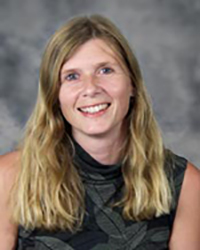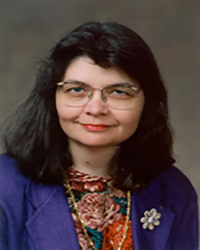
Dementia may rob an older person of memory and focus, but the ability to offer timeless advice about life’s big questions seems to be preserved, according to Florida State University researchers.
Katinka Dijkstra, an assistant professor of psychology, and and Michelle Bourgeois, professor of communication disorders, both of FSU, and colleagues from Long Island University and George Washington University have found that older adults with moderate to severe symptoms of dementia can assume advice giving and teaching roles despite their cognitive impairments. The researchers conducted a pair of first-of-their-kind studies, and the findings were published in the academic journal The Gerontologist.
“A relatively common perception of adults with dementia in nursing homes is that they are helpless and incompetent and do not have the potential to maintain a certain level of independence and ability to communicate,” Dijkstra said. “Our studies show that they have abilities that their caregivers and family members may not even be aware of. Giving those with dementia opportunities to give advice or teach others could help break the cycle of learned helplessness and improve self-esteem and well-being.”

In the first study, the researchers interviewed 14 people with early to advanced stages of dementia at an adult day care center. The mean age of the participants was 82. The researchers asked about marriage, children and church in a purely social way, such as “Tell me about your children.”In later conversations, they asked the adults for advice on the same topics, as in, “I’m thinking about having children. What kind of advice can you give me on that?”
They found that adults were more coherent, informative and focused on the topic when asked for advice as opposed to when they were simply asked about their children, church or marriage.
“Participants took their roles quite seriously when experimenters asked them for advice,” the researchers wrote. “They were eager to dispense useful information, which suggests that there may be social benefits to their information-giving role assignment.Moreover, asking for advice may have contributed to conversations that were more to the point than those seen in the social conversation situation.”
The researchers also conducted a second study to explore whether adults with dementia had retained the ability to serve in a teaching role. For this study, six adults with dementia and six without dementia, all in their 70s or 80s, were given a booklet of pictures to guide them in teaching someone a simple recipe, such as how to make banana pudding or decorate a gingerbread man. Both the cognitively intact older adults and those with dementia successfully taught students to prepare the recipes.
Dijkstra said she was surprised that there was so little difference in the teaching abilities of the healthy adults and those with dementia, although she noted that those with dementia needed more prompting than the others to finish the task.
The researchers theorized that adults with dementia were successful giving advice and teaching a cooking lesson because they were able to tap into knowledge that was accumulated when they were younger and needed these skills as parents or mentors. This type of knowledge does not decline as much as memory of recent events, she said.
“The fact that another person needs information from them also places adults with dementia in a position of empowerment, which makes them more motivated and possibly more goal oriented to finish such a task,” she said.
Caregivers and family members may want to try seeking advice from elders or encouraging them to take a leadership role in certain activities, Dijkstra said.
“This will put the focus on what they are still able to do instead of what they are no longer able to do,” she said. “Awareness of these preserved abilities may also make it easier for family members to deal with the situation of ‘losing’ their family member to dementia or Alzheimer’s disease.”




